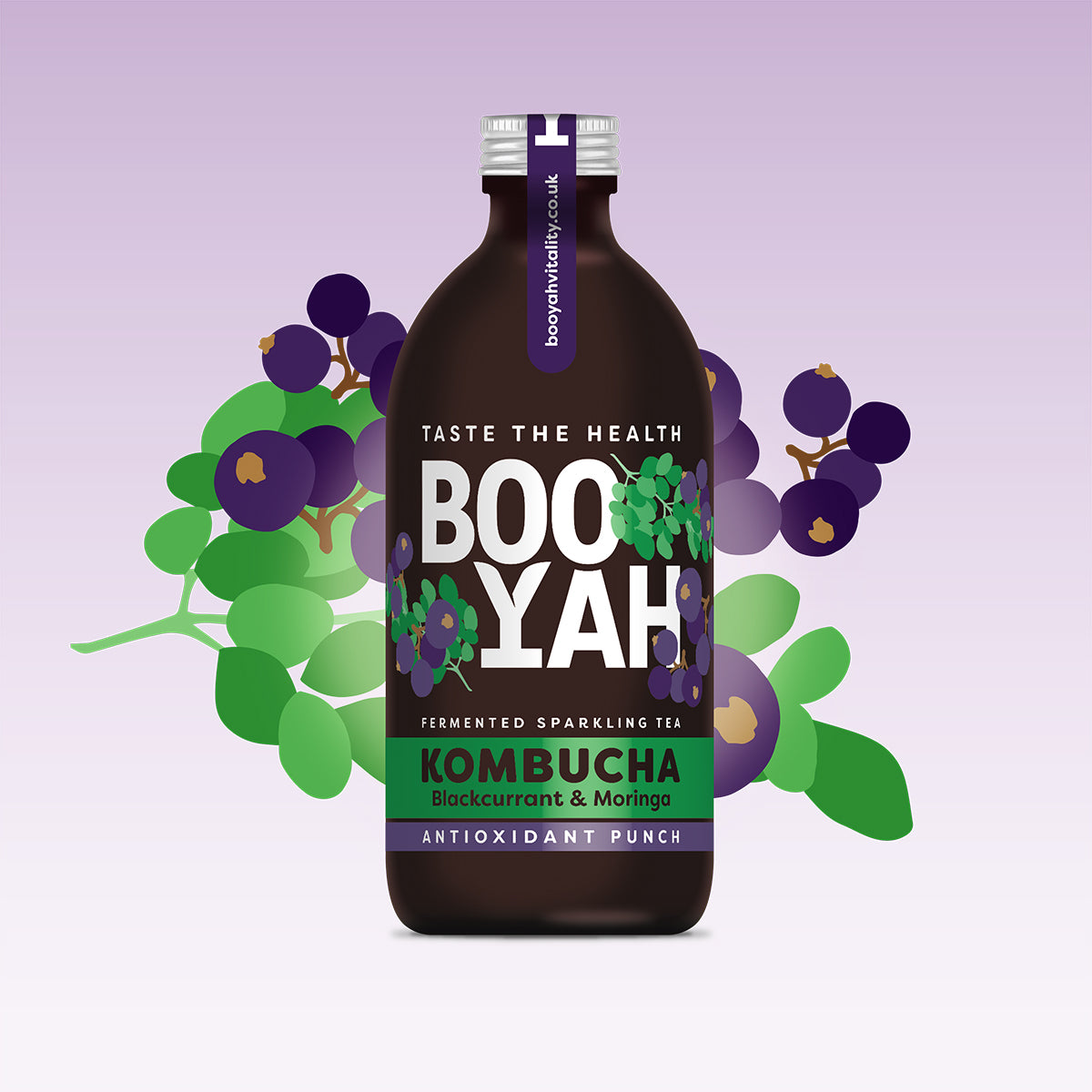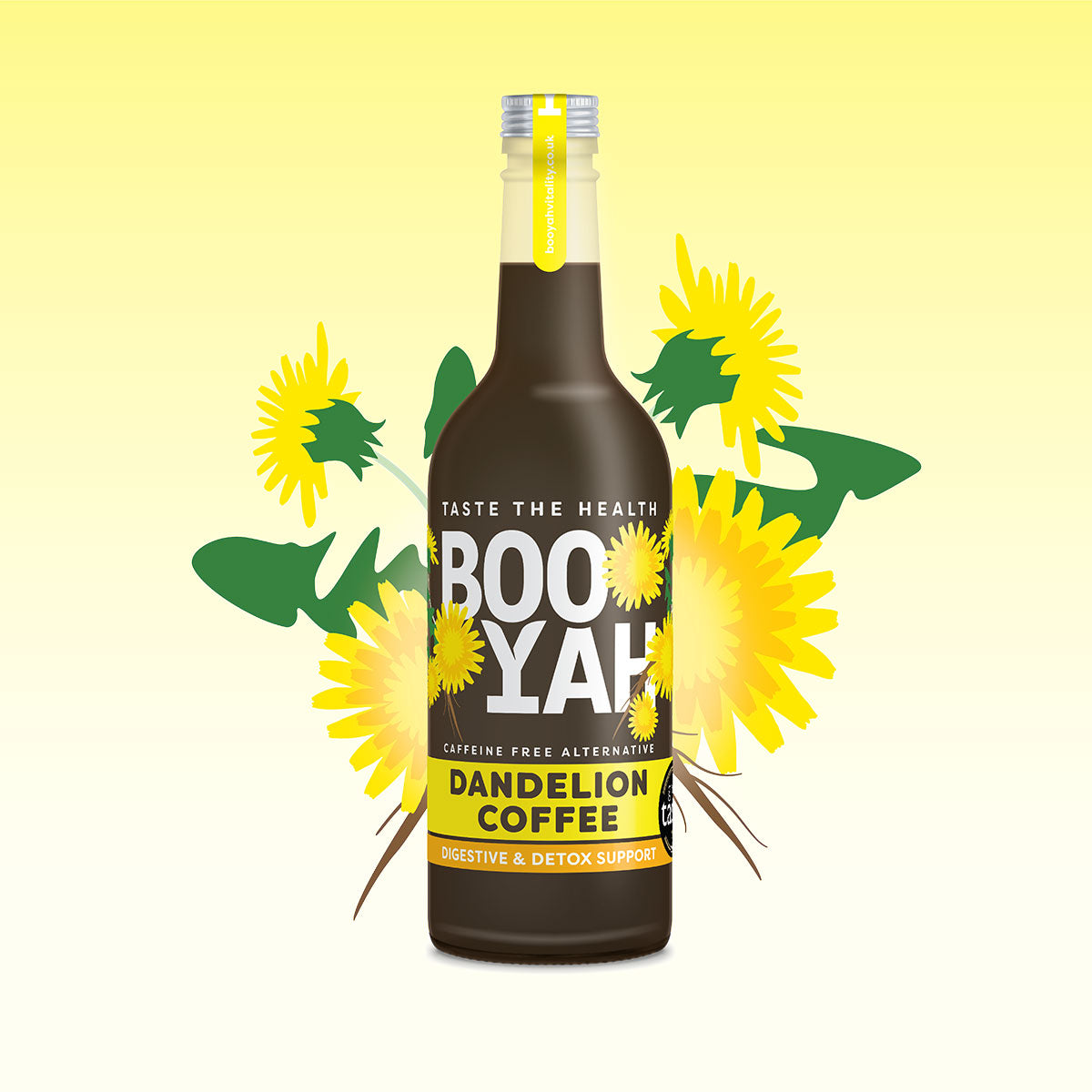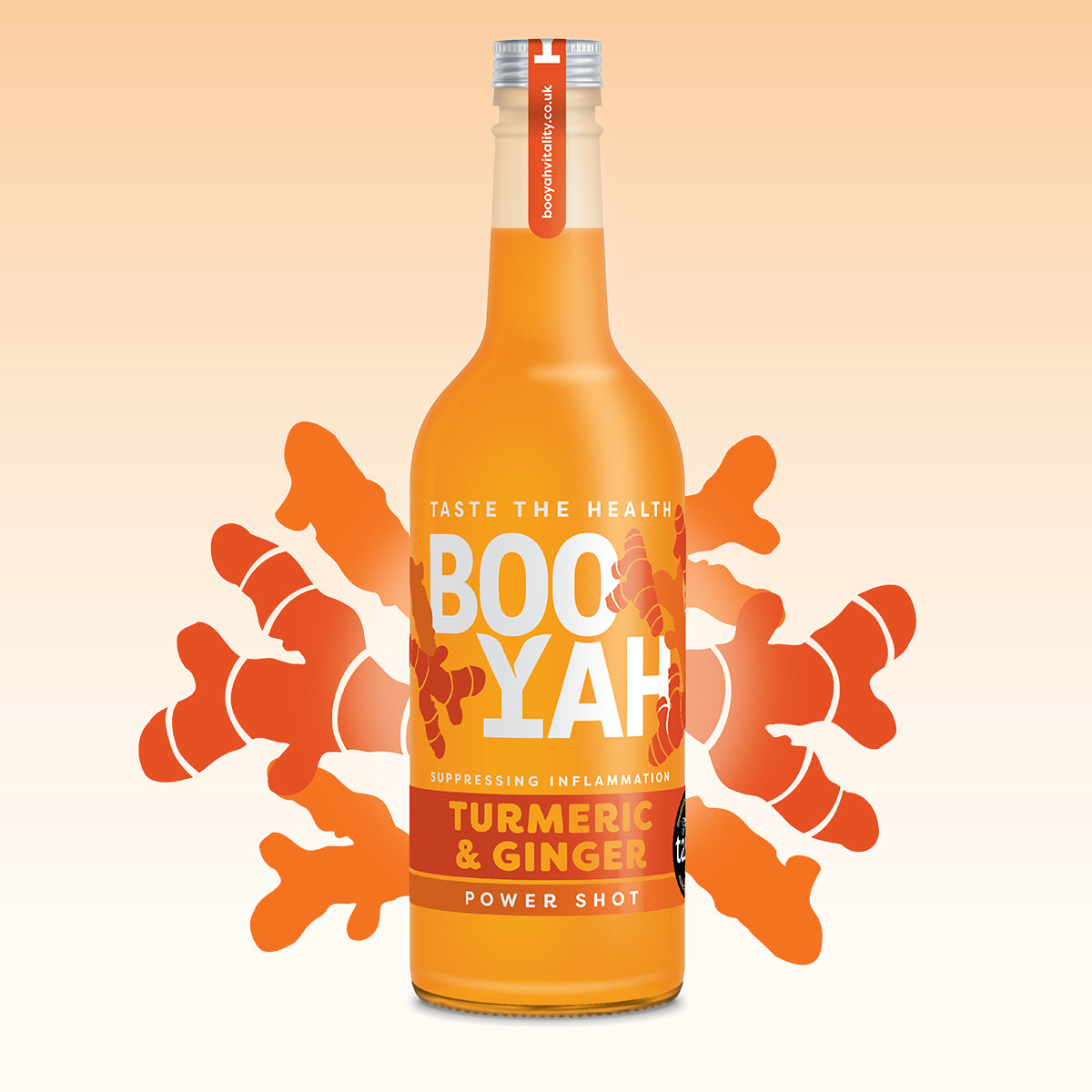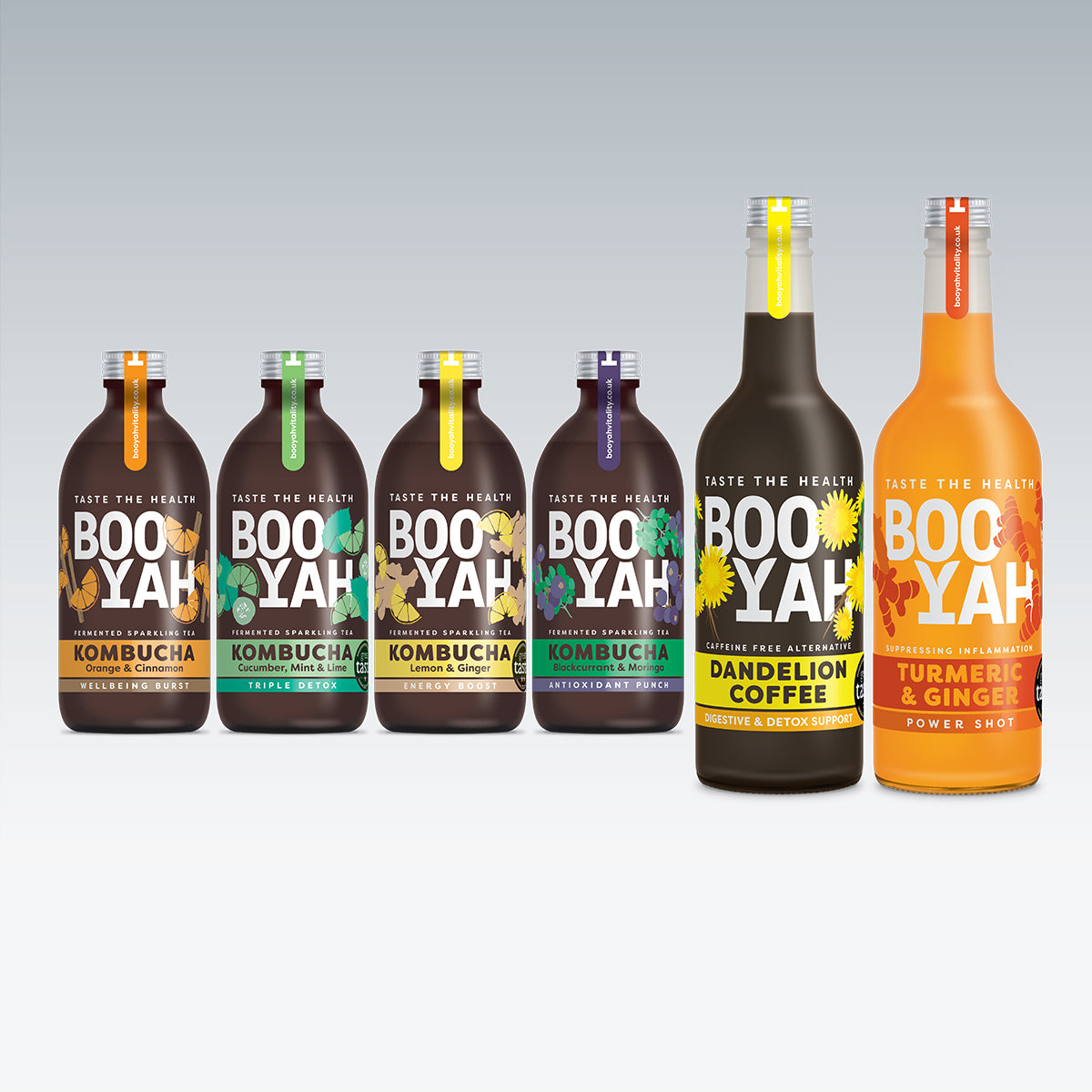You’ve probably heard of antioxidants. We’re frequently told we need more of them, and packaging of many foods proudly claim to be “high in antioxidants!” In fact, it’s one of the many benefits of our own Kombucha, here at Booyah Vitality. But what exactly are antioxidants, and why do we need them?
To understand what antioxidants are, there are some key words to explain first: free radicalsand oxidation.
Every cell in our body is made of molecules. Cast your mind back to science lessons in a stuffy classroom- molecules are made of protons, neutrons, and electrons, in various, carefully configured combinations. Free radicalsare molecules which are missing some electrons. This makes them very unstable, and nature doesn’t like instability. To try to stabilise themselves, free radicals attempt to steal electrons from other, stable molecules. This in turn makes the attacked molecule a free radical, which then steals electrons from its nearest stable molecule… and so on and so on, starting a chain reaction within the body which can be catastrophic.
Over time, free radicals damage cells and cause them to malfunction. They are largely responsible for most of the aging process. For example, they weaken collagen cells in our body, which causes wrinkles.
Free radicals can cause much more serious issues than wrinkles, though. They can damage the walls of your arteries, allowing cholesterol to build up. This reduces the blood flow to your vital organs, such as the heart and brain. The impact of free radicals in the body has been linked to:
-
Greying hair, hair loss, and changes in hair texture
-
Wrinkles, and loss of skin elasticity
-
Diabetes
-
Degenerative diseases such as Huntington’s Disease, or Parkinson’s
-
Central Nervous System diseases such as Alzheimer’s and Dementia
-
Autoimmune disorders such as arthritis
-
Cancer
-
Vision decline, and cataracts
-
High blood pressure
-
Heart disease
Where do free radicals come from?
The main culprit for the creation of free radicals is… yourself. Your metabolic system, to be precise. After eating or drinking, your digestive system breaks down the nutrients to use as needed. Deconstructing the nutrients into components sometimes leaves incomplete molecules, or free radicals, behind. This is a natural process and is pretty much unavoidable.
The immune system is another cause of free radicals. When the body is fighting an illness or infection, the immune system deliberately triggers the production of free radicals. It takes advantage of their need to ‘attack’ other molecules, in order to eliminate pathogens. This is also the way your body gets rid of damaged organ tissue.
Exercise creates free radicals. When you exercise, your use of oxygen increases. Oxygen itself is a free radical- our bodies are, by necessity, rather good at combating the downsides to normal oxygen use levels. Intense exercise, however, tips the balance. A 30 minute, strenuous workout can cause such high levels of oxidationor oxidative stress that it outweighs the benefits of the exercise.
Imagine you had an apple.
You cut a chunk out of that apple and leave it on the side.
Eventually, the fresh-looking, white flesh of the apple would start to turn brown, go soft, and generally become unappetising.
That is oxidation,also called oxidative stress.
Of course, the cells inside your body don’t turn brown or go soft. But the general effect is the same- they become damaged, and too much damage leads to disease.
Where else do free radicals come from?
Not all free radicals come from natural processes. Our bodies are generally well equipped to handle the oxidation that comes from our own metabolic systems. The issue arises when the number of free radicals exceeds that which the body can deal with on its own.
In modern society, we intake way more free radicals than we should, from carcinogens in our environment such as:
-
Tobacco
-
UV radiation
-
Asbestos
-
Air pollution
-
Medical radiation (e.g. x-rays or radiation therapy)
-
Pesticide
-
Alcohol
How can we combat oxidation?
Our bodies naturally produce antioxidants in order to combat the process of oxidation, and limit the damage of free radicals. Antioxidants are molecules which are so stable, they can afford to giveelectrons to free radicals, without becoming unstable themselves. When a free radical steals electrons from normal molecules, it leaves the victim without the right amount of electrons itself, starting a chain reaction of theft and infection.
However, when a free radical takes electrons from an antioxidant, the free radical becomes stable and the antioxidant remains stable too- stopping the chain reaction in its tracks!
Unfortunately, our body can only make so many antioxidants by itself. When we bombard our system with too many free radicals for it to handle, we need to offer it some help. We can do that by consuming extra antioxidants.
Where can I find antioxidants?
Antioxidants are naturally occurring in many plant foods. The important thing to remember is that there is not one miracle cure antioxidant- there are actually loads of them! Each type does a different job and helps combat particular free radicals. The best thing to do is adopt a holistic approach and make sure you are getting enough of all of them. Some of the best ways to up your intake are
-
Vitamin Ain cheese, eggs, oily fish
-
Vitamin Cin citrus fruits, kiwi, strawberries, blackcurrants, peppers, broccoli, brussels sprouts, tomatoes, spinach
-
Vitamin Ein nuts, seeds, vegetable oils, dark leafy green vegetables
-
Beta-carotenein carrots, sweet potatoes, pumpkin, cantaloupe melon, broccoli, kale, beetroot
-
Lycopenein grapefruit, watermelon, red peppers, tomatoes
-
Luteinin oranges, papaya, leafy greens
-
Polyphenolsin grapes, green tea, berries, apples, onions
-
Seleniumin brown rice, brazil nuts, fish, cheese, eggs, barley
This is just a short list of good foods for certain antioxidants, but there are many more. It can be difficult to know what (and how much) of each thing to eat, but some of the best plant-based foods to start with are apples, blueberries, broccoli, lentils, and spinach.
Does Kombucha contain antioxidants?
Yes, kombucha is a fabulous source of antioxidants. Ours is made from green tea, flavoured with orange, cinnamon, lemon, or ginger- all ingredients which are super high in antioxidants.
The best way to minimise the damage of free radicals is to have a completely balanced diet containing enough of all the above vitamins, exercise regularly (but not excessively), avoid air pollution, refuse all medical radiation, wear the best suncream available, home grow all your food to avoid pesticides….
But while you’re waiting for the impossible, you can drink a nice glass of Kombucha and keep your body happy and healthy!







